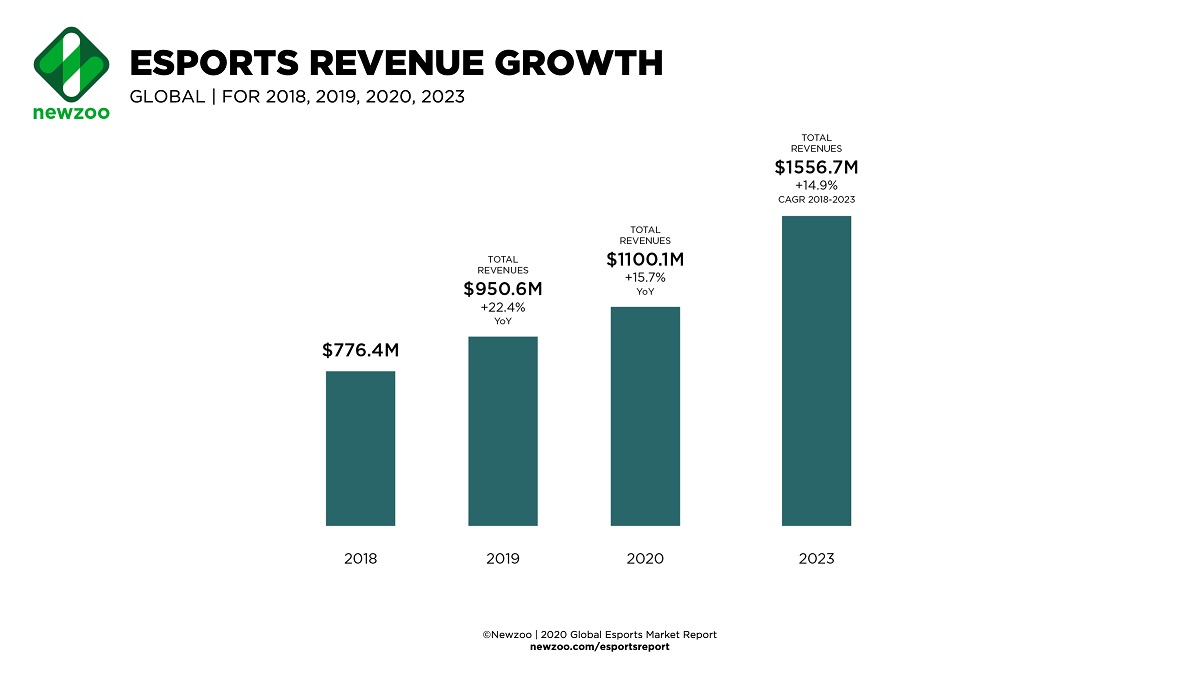Latest News
As eSports become more popular, time for the industry to get real about security

Police in Ukraine recently seized 3,800 PlayStation 4 consoles, which currently retail for around 290 each, and found to their surprise that the operation wasn’t mining cryptocurrency as they assumed but was in fact being used to generate content packs for FIFA Ultimate Team, a popular game mode in the FIFA football series.
The raid and its results underline a fact that may escape more traditionally minded members of the gaming community: eSports is a major industry, and like any industry it is susceptible to fraud. The fact that the games themselves take place virtually is irrelevant to fraudsters who can use the familiar toolkit of multi-accounting, bonus abuse and affiliate fraud to earn thousands.
With many sports teams unable to play throughout much of 2020 and 2021, eSports grew massively. League Championship Series (LCS), one of the largest eSports leagues, became the third most viewed professional sports league amongst 18-34 year olds in the U.S and has retained its corporate sponsors at a time when other leagues were shut down. Success stories like these are blunted by how pervasive eSports fraud is,
So, what kinds of fraud are taking place in eSports, what is it costing eSports organizations and what can be done to stop it?
What kinds of fraud are possible in eSports?
eSports attracts very similar types of fraud to regular sports betting, including:
- Bonus Abuse: Like other sports betting companies, eSports companies often give sign-up bonuses such as free bets to new players. By coding automated systems, a fraudster can sign up to hundreds of accounts and use the free bets to win real money. This can cost gaming companies up to 15% of their revenue.
- Multi-accounting: Similarly, a fraudster can use multiple accounts to perform other types of fraud, such as matched betting, ‘smurfing’ or arbitrage of affiliate fraud.
- Affiliate Fraud: Those eSports betting organizations that draw in some of their new players from affiliates are vulnerable to affiliate fraud in which an affiliate creates fake accounts to gain the pay-out.
- Account takeover: Using lists of passwords from data breaches, keyloggers or phishing a fraudster can gain access to a player’s account and drain their funds.
- Chargeback fraud: A player, who may be a legitimate gamer and not a professional fraudster, initiates a chargeback on a transaction. This is common in gaming when gamblers regret a bad bet and claim that their account was hacked.
The costs of eSports fraud
Fraud costs have a way of snowballing, with each $1 lost through fraud actually costing companies $3. The above techniques are hardly equivalent to the major data breaches of major banking and tech companies that cost on average $3.86 million, but the constant barrage of low-level frauds can soon drain your company’s security budget. Aside from the cost of the fraud itself, there are a number of hidden costs such as:
- Chargeback losses: Investigating and disputing chargebacks will take up your risk team’s time, leaving them little time for more valuable activities. More worryingly, a company with a large number of chargebacks is likely to find it difficult securing credit or loans. Visa and Mastercard’s resolution processes are making things even more difficult for merchants, so you are likely to lose even more.
- Affiliate budget waste: You could be paying for useless clicks from bot networks rather than legitimate customers, wasting your marketing budget and reducing overall ROI.
- Reputational damage: Once word of mouth spreads about customers losing the entire bank accounts to account takeovers it will not be long until players start deserting your site.
- Regulatory fines: The regulations around eSports are not as stringent as with other sports betting, but it will not be long before they catch up. With the industry growing it will not be long before countries put regulations in place to protect players, and without stringent security your company could be fined.
The solutions
You will notice that the majority of the types of fraud common in eSports have to do with fake accounts. These are easy for fraudsters to create using the wealth of publicly available data and leaked information, but fortunately artificial intelligence-based tools have been developed that allow companies to spot synthetic identities.
Through device fingerprinting, email profiling and IP analysis a complete picture of a new signup to your site can be created, allowing software to spot the tell-tale signs of a hastily created account. For example, it could find that an email address does not match any social accounts, or that they use VPNs and data centers to conceal their IP address.
Of course, a sophisticated fraudster could create a convincing fake identity, especially with the wealth of information available from data dumps, so modern technology can also spot the use of pre-paid credit cards or even the speed with which information is entered, which could indicate it is being filled in automatically by a script.
By combining data points from a large and ever-growing set a system can determine whether it is likely that any given new account is fraudulent. For the many cases in which it will not be fully clear whether an account is authentic or not adaptive Know Your Customer checks can be used – customers with several red flags will be given full tests to determine their identity whereas other customers will have less obtrusive tests for a smoother site experience.
eSports has gone from a niche concern to an Olympic sport in a few short years, and that success is going to attract fraud, so it is vital for the industry to pre-emptively defend against fraud by adopting the very highest levels of security.
To learn more, visit: https://seon.io/
AI
Despite AI’s Rise, Fraud Teams Keep Growing — SEON 2026 Report

SEON, the command centre for immediate Fraud Prevention and AML Compliance, has unveiled AI Reality Check: 2026 Fraud & AML Leaders Report, the second iteration of its sector research, derived from a worldwide survey of 1,010 leaders in fraud, risk, and compliance spanning payments, fintech, financial services, retail, eCommerce, and gaming.
The figures reveal an unforeseen narrative: AI is ubiquitous, yet operations are not becoming easier to manage. Currently, 98% of organizations utilize AI in fraud and AML processes, with 95% expressing confidence in its effectiveness; meanwhile, headcount plans rose from 88% to 94% year-over-year, and 83% anticipate budget increases in 2026.
Complexity Is Surpassing Automation
AI has not lessened the workload — it has revealed the extent of work that has always existed. Fraud losses are increasingly approaching revenue growth, threats are advancing more rapidly, and disjointed systems restrict the true potential of AI at scale. Key year-over-year shift:
Leadership’s confidence in their teams’ performance is lagging. The number of leaders who disagreed with the statement, “fraud losses are growing faster than revenue,” dropped by almost 40% from the previous year
Inside the Numbers:
AI is baseline, not experimental
- 98% already integrate AI into daily workflows (only 2% still planning)
- 95% are confident AI can detect and prevent fraud (52% very confident)
- Top use case: AI/ML for transaction monitoring (30%)
Fraud and AML investment keeps climbing
- 83% expect fraud/AML budgets to increase in 2026
- 94% plan to add at least one full-time hire (up from 88% in 2025)
- 85% plan to add a vendor, 49% plan to replace one
Fragmentation is the bottleneck
- 95% claim “some integration” between fraud and AML systems
- Only 47% run fully integrated workflows; the rest rely on partial connections
- 80% say getting a unified view of data is challenging
For many, time-to-value remains slow
Only 10% go live in under two weeks
38% take 1–3 months, 24% take 4+ months
When implementations run long, top impacts include increased costs (52%) and prolonged fraud exposure (47%)
Teams are growing, not shrinking
94% plan to increase headcount despite automation gains
85% see AI agents as support/augmentation, not replacement (only 12% see eventual replacement)
Top fraud threats reported:
- Account takeovers: 26%
- Promo/discount abuse: 18%
- Return fraud: 18%
“Fraud and financial crime were supposed to become more manageable as AI matured,” said Tamas Kadar, CEO and co-founder, SEON. “Instead, 2026 is the year leaders are confronting a more complicated reality. AI adoption is real, confidence is high, but the scale and pace of fraud — compounded by fragmented systems — continue to drive increased investment rather than reduced overhead. The bottleneck is no longer whether AI works. It’s everything around it: disconnected data, siloed teams, slow implementations. The organisations that pull ahead will be the ones that unify fraud and AML intelligence, shorten the distance between threats and controls, and treat integration as strategy, not plumbing.”
Fast-Growing Companies Invest in Integration Early
Organisations growing 51%+ are nearly twice as likely as slower peers to report that achieving unified visibility is “not very challenging.” They treat integration as infrastructure, not an IT project.
What’s Next: From “Does AI Work?” to “Can We Trust It?”
With adoption near-universal, the conversation is shifting to governance, explainability and accountability:
- 78% say decentralised digital identity will become central to fraud/AML
- 33% cite data privacy regulations (GDPR, CCPA) as the biggest external force shaping AML
- 25% point to criminals’ advancing use of AI and obfuscation techniques
The post Despite AI’s Rise, Fraud Teams Keep Growing — SEON 2026 Report appeared first on Eastern European Gaming | Global iGaming & Tech Intelligence Hub.
Latest News
N1 Faces: Shirin Mammadov — Building Trust That Drives Performance

Growth in affiliate marketing is easy to promise, but sustaining it over the long term is another story. Real results are built on consistency, clear communication, and relationships that can withstand market shifts, changing traffic sources, and rising competition.
In the latest episode of N1 Faces, the N1 Partners team introduces Shirin Mammadov, Senior Affiliate Manager — a specialist dedicated to creating structured, trust-based collaborations with affiliates. Shirin shares his journey into the industry, the principles guiding his work today, and what it takes to maintain performance and clarity in high-pressure environments.

How did you get into affiliate marketing, and when did you know this was your path?
“It started unexpectedly. At the time, I was running my own startup and wasn’t actively looking to move into affiliate marketing. The industry felt fast-paced, competitive, and performance-driven — exactly where I thrive. I’ve always enjoyed communication, negotiation, and building relationships, and affiliate marketing combines all of that. Over time, I realized it wasn’t just a temporary step — it was a field where I could grow and challenge myself long-term.”
What brought you to N1 Partners, and what was the deciding factor?
“Before joining N1 Partners, I was on the affiliate side, and N1 was one of my partners. From the beginning, the team was transparent, professional, and performance-minded, while also maintaining a genuinely friendly atmosphere. Trust was the key factor — I knew their standards and approach to growth. It wasn’t a risky move; it was strategic.”
Advice to your first-month self as an affiliate manager
“Focus less on proving yourself immediately and more on deeply understanding the product, numbers, and traffic quality. Strong partnerships take time, and trust matters more than quick deals. Ask questions, challenge assumptions, and the faster you understand the bigger picture, the faster you grow.”
How do you spot long-term partners versus one-off deals?
“You can often tell from the very first conversations. If a partner is transparent about traffic sources, open to feedback, and focused on optimization rather than only the highest CPA, that’s a good sign. Long-term partners think strategically, test continuously, and plan for growth. When trust and goals align, the partnership naturally becomes sustainable.”
Separating normal volatility from a real problem
“I look at trends over time instead of reacting to a single day’s numbers. Minor fluctuations are normal, but consistent drops or unusual patterns are red flags. External factors like seasonality or campaign changes are considered before jumping to conclusions. If a pattern is concerning, I dig into the data and communicate with the partner to find the root cause.”
A time communication “saved” a partnership
“Yes, a partner was frustrated with underperformance. Rather than focusing on numbers alone, I scheduled a conversation to understand their concerns. Aligning on goals, explaining strategy, and suggesting practical adjustments rebuilt trust and improved results. Proactive, transparent communication can turn challenges into stronger, strategic partnerships.”
Personal motto
“Work smart, communicate clearly, and always aim for long-term results.”
Staying balanced under pressure
“I stay active — at the gym or through consistent movement — and take short breaks from work to reset. Planning my day carefully and focusing on one task at a time helps manage stress. Physical activity and structured focus keep me calm and effective.”
If you weren’t in iGaming
“I’d probably be a seaman. I’m drawn to the sea — the adventure, challenge, and discipline appeal to me. Both paths require focus, navigating uncertainty, and taking responsibility for outcomes.”
Top-3 Blitz: Biggest Red Flags in Leads
-
Unclear traffic sources — ask detailed questions and require transparency.
-
Inconsistent performance — monitor closely and set clear KPIs.
-
Lack of communication — address directly, set expectations, and decide if the partnership is viable.
What affiliates value most in a program
-
Timely and transparent payments
-
Clear communication and support
-
Growth opportunities with competitive offers, incentives, and scalable tools
Essential tools for affiliate managers
-
CRM / affiliate tracking platforms
-
Spreadsheet & analytics tools
-
Communication platforms (email, chat, video calls)
Join N1 Partners
Partners interested in launching, exploring tailored terms, or testing an offer can reach out directly to Shirin.
N1 Partners provides everything affiliates need to stay ahead: high-converting products, ongoing analytics with optimization guidance, and hands-on support from managers focused on long-term performance.
More than just an affiliate program, N1 Partners is a multi-brand platform and direct advertiser, uniting 14+ casino and betting brands, operating across Tier-1 GEOs, delivering Reg2Dep rates up to 70%, and offering competitive deals for top partners — CPA up to €700 and RevShare up to 45%. Trusted by over 14,000 partners, N1 Partners is recognized for transparency, flexibility, and a partner-first approach — where people and communication quality are the foundation of long-term success.
The post N1 Faces: Shirin Mammadov — Building Trust That Drives Performance appeared first on Eastern European Gaming | Global iGaming & Tech Intelligence Hub.
Latest News
N1 Faces: Shirin Mammadov — Building Trust That Drives Performance

Growth in affiliate marketing is easy to promise — much harder to sustain. Real long-term results are built on consistency, clear communication, and relationships that can withstand market shifts, changing traffic sources, and rising competition.
In the new episode of N1 Faces, the N1 Partners team introduces Shirin Mammadov, Senior Affiliate Manager — a specialist focused on building structured, trust-based collaboration with partners. In this interview, Shirin shares how he entered the industry, what principles guide his work today, and what it takes to maintain performance and clarity in a high-pressure environment.
Shirin Mammadov
Senior Affiliate Manager, N1 Partners
How did you get into affiliate marketing, and when did you realize this was the field you wanted to grow in?
It started unexpectedly. At the time, I was running our own startup and wasn’t actively looking to move into affiliate marketing. The industry felt fast-paced, competitive, and performance-driven — exactly where I thrive. I’ve always enjoyed communication, negotiations, and building relationships, and affiliate marketing combines all of that. After some time in the role, I realized this wasn’t just a temporary step — it was a field where I could grow and challenge myself long term.
What brought you to N1 Partners, and what was the deciding factor?
Before joining N1 Partners, I was on the affiliate side, and N1 was one of my partners. From the start, the relationship with the team was transparent and professional. I saw their structured processes and strong performance mindset, but also a genuinely friendly atmosphere.
When I decided to move forward in my career, the key factor was trust. I already knew their standards and approach to growth. It wasn’t a risky move — it was a strategic one. I wanted to join a company I respected and where my affiliate-side experience could add real value.
What advice would you give your first-month self as an affiliate manager?
I would tell my first-month self to focus less on trying to prove myself immediately and more on deeply understanding the product, numbers, and traffic quality. Building strong partnerships takes time, and trust is more important than quick deals. I would also remind myself to ask more questions and not be afraid to challenge assumptions. The faster you understand the bigger picture, the faster you grow.
When do you know a partner will become a long-term relationship rather than a one-off deal?
You can usually see it from the very first conversations. If a partner is transparent about their traffic sources, open to feedback, and interested in continuous optimization rather than just the highest CPA, that’s a strong sign. Long-term partners think about strategy, testing, and growth — not just short-term profit. When there is mutual trust and aligned goals, it naturally turns into a sustainable relationship rather than a one-off deal.
How do you separate “normal volatility” from a real problem when you look at performance reports?
I separate normal volatility from a real problem by looking at trends over time rather than reacting to a single day’s numbers. Small fluctuations are normal, but consistent drops, unusual patterns, or deviations from historical performance are red flags. I also consider external factors, like seasonality or campaign changes, before jumping to conclusions. Once a pattern looks concerning, I dig into the data and communicate with the partner to identify the root cause.
Was there a time when the right communication truly “saved” a partnership? What did you do differently?
Yes, there was a situation where a partner was underperforming and frustrated with their results. Instead of focusing on numbers alone, I scheduled a direct conversation to understand their concerns and listen carefully. By aligning on goals, explaining the strategy, and suggesting practical adjustments, we rebuilt trust and improved performance together. It showed me that proactive, transparent communication can turn a challenging situation into a stronger, strategic partnership.
Do you have a personal motto? Sum yourself up in one sentence.
Work smart, communicate clearly, and always aim for long-term results
What helps you stay balanced and clear-headed during high-pressure periods?
I stay balanced by keeping active and making sure I move my body, whether it’s at the gym or just staying consistent with workouts. I also make a point to disconnect from work for short periods, which helps me reset and approach challenges with a clear mind. Planning my day carefully and focusing on one task at a time keeps stress manageable. This combination of physical activity and structured focus helps me stay calm and effective under pressure.
If you weren’t in iGaming …
If I weren’t in iGaming, I think I’d be a seaman. I’ve always been drawn to the sea – the challenge, the adventure, and the discipline it requires really appeal to me. In a way, both paths share the same mindset: staying focused, navigating uncertainty, and taking responsibility for outcomes.
Top-3 Blitz
What are the biggest red flags in leads — and what do you do when you see them?
- Unclear traffic sources — I ask detailed questions and request transparency before moving forward.
2. Inconsistent performance — I monitor closely and set clear KPIs to track improvements.
3. Lack of communication or responsiveness — I address it directly, set expectations, and decide if the partnership is worth continuing.
From an affiliate’s perspective, what matters most in an affiliate program?
1.Timely and transparent payments — affiliates need confidence in accurate, on-time payments.
2.Clear communication and support — being able to get answers, guidance, and updates quickly is essential.
3.Opportunities for growth — competitive offers, performance incentives, and tools that help them scale traffic effectively.
Name the tools you can’t imagine an affiliate manager working without.
- CRM / Affiliate tracking platforms — to monitor performance, track partners, and analyze data accurately.
2. Spreadsheet & analytics tools — for performance analysis, trend spotting, and making data-driven decisions.
3. Communication tools — email, chat, and video calls to maintain strong partner relationships.
Join N1 Partners
Partners who want to discuss a launch, explore tailored terms, or test an offer can reach out to Shirin directly.
N1 Partners provides everything affiliates need to stay ahead: high-converting products, ongoing analytics with optimization recommendations, and hands-on support from managers focused on long-term performance.
N1 Partners is more than an affiliate program. As a multi-brand affiliate platform and direct advertiser, the company unites 14+ casino and betting brands, operates across Tier-1 GEOs, delivers Reg2Dep rates of up to 70%, and offers competitive deals for top partners — CPA up to €700 and RevShare up to 45%. Trusted by 14,000+ partners, N1 Partners is recognized for its transparency, flexibility, and partner-first approach — where people and communication quality remain the foundation of long-term success.
The post N1 Faces: Shirin Mammadov — Building Trust That Drives Performance appeared first on Americas iGaming & Sports Betting News.
-

 iGaming7 days ago
iGaming7 days agoPRAGMATIC PLAY UNEARTHS PROGRESSIVE MULTIPLIERS IN ROLLING IN TREASURES
-

 Comatel6 days ago
Comatel6 days agoCOMATEL CELEBRARÁ UNA FIESTA PARA CIENTOS DE OPERADORES TRAS FINALIZAR EL PRIMER DÍA DE LA FERIA ESPAÑOLA, INTERAZAR
-

 Booming Games7 days ago
Booming Games7 days agoBooming Games Introduces Instastrike, the Latest Diamond Hits Trio
-

 ELA Games6 days ago
ELA Games6 days agoELA Games Powers the Reels with Retro-Electric Slot “Rapid Wild”
-

 Africa7 days ago
Africa7 days agoGaming Realms Makes South African Debut in Partnership with Hollywoodbets
-

 Alex Green Vice President Games at ZEAL6 days ago
Alex Green Vice President Games at ZEAL6 days agoWunderino Adds ZEAL’s Premium Slots as Partnership Kicks Off
-

 Blueprint Gaming7 days ago
Blueprint Gaming7 days agoNew collect modifiers and dual bonus offering star in Blueprint Gaming’s King Kong™ Splash
-

 Brasil6 days ago
Brasil6 days agoBrasil evita choque fiscal y apuestas entran en fase reputacional en LATAM
































